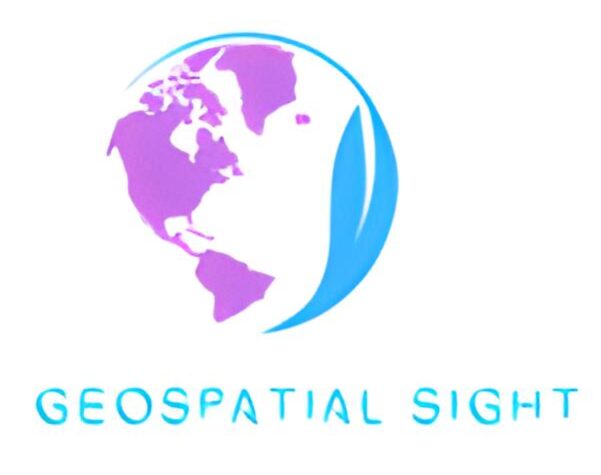Job Opportunity: Post-Doctoral Research Fellowship in Advanced Earth Observation (EO) for Earth Science
Job Req ID: 17937
Closing Date: October 3, 2023, 23:59 CET/CEST
Publication: External Only
Vacancy Type: Internal Research Fellow
Date Posted: September 12, 2023
Internal Research Fellowship Opportunity at the Directorate of Earth Observation Programmes
ESA is a champion of equal opportunity employment, dedicated to fostering diversity in the workforce and cultivating an inclusive work environment. We encourage applications from all eligible candidates, regardless of gender, sexual orientation, ethnicity, beliefs, age, disability, or other attributes. We particularly encourage applications from women.
This post is classified F2 on the Coordinated Organisations’ salary scale.
Location:
ESRIN, Frascati, Italy
Our Team and Mission:
As the incumbent of this two-year position, you will report to the Head of the Science Section within the Data Applications Division of the Science, Applications, and Climate Department in the Directorate of Earth Observation Programmes. In the course of your duties, you will closely collaborate with colleagues in the Directorate of Earth Observation Programmes.
The Science Section is a dynamic R&D team at the forefront of Earth observation (EO) research and Earth system science endeavors, working in collaboration with European and international scientific communities. For an overview of our activities, please visit our website: ESA EO for Society.
You will be an integral part of the Earth System Science Hub, a novel scientific facility at ESA that serves as a hub for networking and scientific cooperation among top-tier researchers in ESA Member States and worldwide. The Hub will bring together both junior and senior scientists from various EO and Earth system science disciplines to contribute to the development of the next generation of EO products and collectively tackle some of the most significant scientific challenges of this decade.
The Hub leverages the latest advancements in open data science, cloud computing, and high-performance computing (HPC) to offer a collaborative, advanced development environment for scientific research.
Furthermore, the Hub will play a pivotal role in establishing a strong scientific foundation for the realization and evolution of the “Digital Twin Earth” concept—a high-resolution replica of our planet, encompassing its processes and interactions with human activities and ecosystems.
We encourage you to explore ESA’s website for more information: ESA.
Areas of Research and Activities:
The selected candidate will be responsible for a diverse range of activities, including:
- Conducting advanced research to address crucial observational gaps and scientific priorities in EO and Earth system science. This research will span a wide array of innovative subjects, from developing and validating novel methods, algorithms, and EO products to groundbreaking Earth system and climate research.
- Advancing our comprehension of the Earth and climate system through the utilization of advanced EO data, models, and artificial intelligence (AI), and exploring its interconnections with human activities and ecosystems.
- Establishing a robust scientific basis for the implementation and advancement of the Digital Twin Earth concept, achieved by engaging in collaborative research across various domains, working closely with ESA experts, as well as international scientists and science teams.
- Supporting the definition, technical oversight, and coordination of scientific exploitation projects carried out by external teams of experts and scientists across all domains of EO research and Earth system science.
- Maintaining continuous communication with scientific communities, including major international programs, initiatives, and partner space agencies, such as NASA.
- Formulating the scientific agenda that will drive future ESA activities and plans.
Thematic Priorities:
The candidate will contribute to the scientific activities of the Science Section within one of the following thematic priorities:
- Advanced Synthetic Aperture Radar (SAR) methods and techniques, including the development of novel retrieval techniques and algorithms for SAR, focusing on new missions such as BIOMASS, NISAR, and the upcoming ROSE-L.
- Hydrology and water cycle research, emphasizing the utilization of EO for hydrology and water cycle research, spanning from global to basin scales, and harnessing the capabilities of existing and forthcoming Sentinel missions.
- Terrestrial carbon cycle, involving the enhancement of our observational capacity to monitor, quantify, and comprehend the terrestrial carbon cycle’s sensitivity to climate change and its interactions with human activities and land use, such as agriculture, forestry, energy consumption, and water use. Special emphasis will be placed on synergistic utilization of capabilities from sources like Copernicus Sentinels, FLEX, BIOMASS, and other national and international missions.
- Biodiversity, aimed at advancing the development of a new generation of biodiversity observation products, with a particular focus on the natural and anthropogenic pressures on terrestrial and freshwater ecosystems, including the impact of climate change, ecosystem integrity, and resilience, as well as ecological processes related to ecosystem degradation and restoration.
- Ocean science, concentrating on exploiting the latest advancements in EO satellite technology to enhance our observation capabilities and deepen our scientific understanding of the ocean’s role in the Earth and climate system.
- Polar science and cryosphere research, with a focus on advancing our EO-based observational capability to monitor, comprehend, and predict changes in polar regions, including ice sheet dynamics, glacier and ice cap behavior, ice-ocean-atmosphere interactions, snow processes, permafrost, sea ice, and polar ocean studies.
- Atmosphere research, involving the advancement of EO-based atmospheric observations from existing and heritage missions and their application in atmospheric research and Earth system science. Special attention will be given to new missions such as EarthCARE.
Please indicate your preferred theme in your proposal.
Technical Competencies:
- Knowledge relevant to the field of research
- Research/publication record
- Ability to conduct research autonomously
- The breadth of exposure from past and/or current research/activities
- Ability to gather and share relevant information
- General interest in space and space research
Behavioral Competencies:
- Result Orientation
- Operational Efficiency
- Fostering Cooperation
- Relationship Management
- Continuous Improvement
- Forward Thinking
Education:
You must have earned a PhD (or equivalent) in physics, engineering, or Earth system science, along with research experience and peer-reviewed publications in areas pertinent to the proposed research fields.
Additional Requirements:
- Proven research experience based on the utilization of pertinent satellite measurements.
- Proficiency in science software development and programming skills.
- Additional experience in modeling would be beneficial.
- Strong analytical and communication skills, with the ability to work autonomously in a multicultural environment.
- Proficiency in English and/or French, the working languages of the Agency. Proficiency in English is mandatory.
Other Information:
For behavioural competencies expected from ESA staff in general, please refer to the ESA Competency Framework.
For further information on the Internal Research Fellowship Programme please visit: Internal Research Fellowship
The Agency may require applicants to undergo selection tests.
In addition to your CV and motivation letter, please submit a proposal of no more than 5 pages outlining your intended research in the “additional documents” field within the “application information” section.
At ESA, we highly value diversity, and we embrace individuals with disabilities. Whenever feasible, we strive to provide necessary support for individuals with disabilities in the workplace. The Human Resources Department is available to assist during the recruitment process. If you’d like to discuss this further, please contact us at contact.human.resources@esa.int.
Important Note:
Applications will be considered only from nationals of the following States: Austria, Belgium, the Czech Republic, Denmark, Estonia, Finland, France, Germany, Greece, Hungary, Ireland, Italy, Luxembourg, the Netherlands, Norway, Poland, Portugal, Romania, Spain, Sweden, Switzerland, and the United Kingdom. Nationals from Latvia, Lithuania, Slovakia, Slovenia (Associate Member States), Canada (Cooperating State), Bulgaria, Croatia, and Cyprus (European Cooperating States) are also eligible.
According to the ESA Convention, the recruitment of staff must take into account an adequate distribution of posts among nationals of the ESA Member States*. When short-listing for an interview, priority will first be given to candidates from under-represented Member States*.
In compliance with European Space Agency security procedures, successful candidates will undergo basic screening by an external background screening service as part of the selection process.

